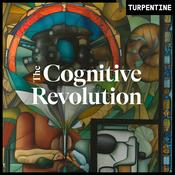Karan Singhal, Head of Health AI at OpenAI, explains how ChatGPT Health is achieving attending-physician-level performance and already serving hundreds of millions of users. He details how OpenAI works with over 250 doctors, built the 49,000-criteria HealthBench evaluation, and ran one of the first randomized trials of AI copilots in clinical care. The conversation explores privacy and safety safeguards, medical multimodality, N-of-1 treatment plans, and how AI could become a standard part of global medical practice.
Use the Granola Recipe Nathan relies on to identify blind spots across conversations, AI research, and decisions: https://bit.ly/granolablindspot
LINKS:
modeling human wellness
Sponsors:
Claude:
Claude is the AI collaborator that understands your entire workflow, from drafting and research to coding and complex problem-solving. Start tackling bigger problems with Claude and unlock Claude Pro’s full capabilities at https://claude.ai/tcr
Serval:
Serval uses AI-powered automations to cut IT help desk tickets by more than 50%, freeing your team from repetitive tasks like password resets and onboarding. Book your free pilot and guarantee 50% help desk automation by week 4 at https://serval.com/cognitive
Framer:
Framer is an enterprise-grade website builder that lets business teams design, launch, and optimize their.com with AI-powered wireframing, real-time collaboration, and built-in analytics. Start building for free and get 30% off a Framer Pro annual plan at https://framer.com/cognitive
Tasklet:
Tasklet is an AI agent that automates your work 24/7; just describe what you want in plain English and it gets the job done. Try it for free and use code COGREV for 50% off your first month at https://tasklet.ai
CHAPTERS:
(00:00) About the Episode
(06:11) Cancer story and mission
(11:46) Designing safe health AI (Part 1)
(17:49) Sponsors: Claude | Serval
(21:09) Designing safe health AI (Part 2)
(26:48) Uncertainty, HealthBench and robustness (Part 1)
(30:23) Sponsors: Framer | Tasklet
(32:50) Uncertainty, HealthBench and robustness (Part 2)
(38:11) Chain-of-thought and evaluation
(46:49) Real-world performance and frontiers
(55:35) Multimodal data and science
(01:05:36) Personalization, privacy and monitoring
(01:15:47) Models, data and incentives
(01:29:31) Doctor adoption and workflows
(01:38:13) Scalable oversight and alignment
(01:51:06) Move 37 and future
(02:00:50) Episode Outro
(02:03:06) Outro
PRODUCED BY:
https://aipodcast.ing



